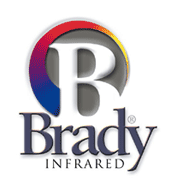Tip of the Week Archive
IR Inspections and Using Google Earth
Sponsored by:

IR Inspections and Using Google Earth
Tip provided by: Brady Infrared
Google Earth (GE) has revolutionized the search engine process for finding properties throughout the entire US and world. Built upon a platform of aerial photographs, one can view color images of almost any location they desire. The “fly-over” date will tell how old an image is, but in most cases you can find what you are looking for. Also, the amount of overlap between aerial images as well as the altitude of the “fly-over” will dictate the resolution of a particular area viewed.
 We have found GE to be a valuable tool for infrared roof inspections. We use the measuring tool to get remarkably accurate estimates of roof sizes to provide pricing to our clients. The measuring tool can be found in the drop-down menu once an image is displayed. By dragging the straight measuring line on top of the roof image, feet or meter values can be obtained.
We have found GE to be a valuable tool for infrared roof inspections. We use the measuring tool to get remarkably accurate estimates of roof sizes to provide pricing to our clients. The measuring tool can be found in the drop-down menu once an image is displayed. By dragging the straight measuring line on top of the roof image, feet or meter values can be obtained.

We have also used GE to provide base maps that are taken out into the field. The roof image can be printed directly from GE or you can save the image as a .jpeg to your favorite draw program. Ours happens to be
PowerPoint. Information we enter on these maps includes, infrared and visual image numbers, core/moisture probe locations and results, and other general observations about the roof.

Our saved .jpeg roof images are also used to generate roof drawings for final reports. The .jpeg image is imported into PowerPoint and then used as a tracing guide in concert with the multiple line tool to draw the outline of the roof. Our final thermogram page has a color infrared and visual photograph, the location of thermal anomalies, and a “look direction” arrow of the infrared image on the roof drawing. If multiple thermograms are required for a job, PowerPoint allows a slide to be copied and then edited as needed.
In short, GE has saved us time by reducing the number of pre-job inspections we would normally perform to measure out and get a general feel for a roof. It has also saved us time in the field when measuring and drawing roof footprints. Finally, it has provided an excellent resource for generating professional documents for final reports.
Advertisement

